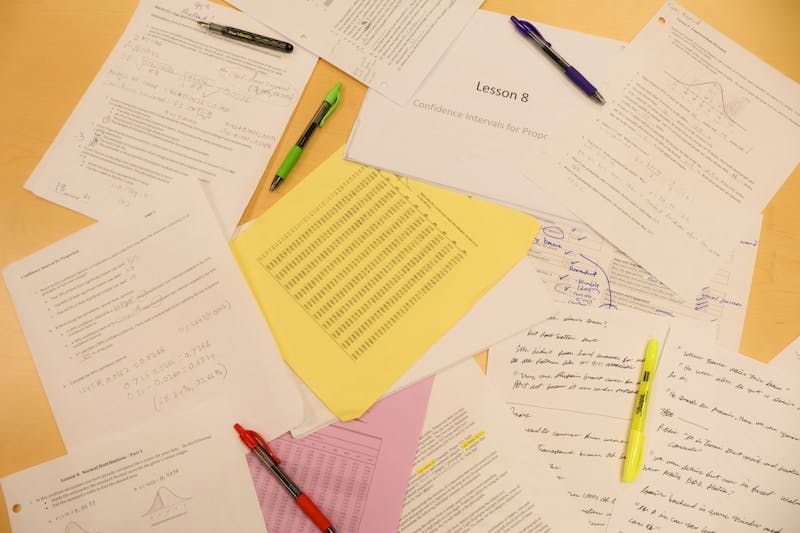Winter break. A moment a lot of college students looked forward to. At least I did.
Five weeks to be free in the comfort of where you call home, seeing old friends, and doing whatever you want whenever you want without the shadow of responsibility that is college. Unfortunately, that wasn’t my experience, and my last winter break of my undergrad was left taking two winter classes (the worst).
One of them was Intro to Women and Gender Studies taught by Professor Misty Knight. I was excited for the course because I was fresh off taking Women in American Politics with Professor Sara Grove and felt as if the lessons in the class should someway correlate with each other. Boy was I wrong.
Week 1, I go in thinking it would be a breeze. The first discussion board was to introduce yourself and what you think gender studies is. The second board was what materials within the unit made you
go “aha.” What are the materials, you may ask? Materials consisted of feminism, intersectionality, representation and my favorite: white privilege. As a black woman seeing white privilege being talked about in a classroom made up of mostly white people, I knew the dance that was about to occur. And of course, the dance occurred. My “aha” moment specifically came from a TED Talk given by Kimberlé Crenshaw in which she discussed intersectionality. I was blown away by this talk. One of the main points Crenshaw made was the intersectionality that black women face gets them overlooked, ignored and treated as an afterthought within society compared to their counterparts in the community and outside their community. This resonated well with me, and I even learned things I hadn’t known. Insert “aha” feeling here.
So, this was my discussion board talking point, and the main point I wanted to make clear is that by watching a TED Talk like Crenshaw’s and then reading articles like “Explaining White Privilege
to a Broke White Person,” I made a fair assumption intersectionality gets watered down and washed away by white people. I want to make it abundantly clear; I am not saying that white people don’t have intersectionality because they do. You can be white and gay, white and Christian, white and a woman and many other things. But Crenshaw’s point has been played out so many times within all parts of society: the intersectionality of black women puts them in a dangerous position. Yes, you have intersectionality, but something that is a part of that is your whiteness, which can shield you from many things.
My main point I wanted to make with the background information of this course is white fragility. I made this comment speaking from the viewpoint in which a TED Talk was given in. A black women’s perspective/ experience. What occurred next was something that angered me, but like I said, I knew this dance.
From my fellow peers in class, I was told I was making “broad statements” and my favorite line
that will solve all things wrong in the world, “we just need to understand each other and be respectful.” On other discussion boards, I was seeing white fragility play out even more. Comments were made when it came to the harassment that black people will face when they are shopping in stores that white people have the privilege of not experiencing.
What was the response to this? “Anyone can be followed around in a store,” which completely overlooks the harassment in which black people face because they are black.
Now what sent me over the edge and led to this article was when the point I made in my own thread responding to the professor’s question was used to further the point of someone else’s white fragility.
In the thread where I made my own original thought, “your whiteness protects you,” another student took that to someone else’s thread and said, “Your race does not protect you, it only makes you become a victim less likely.” White fragility. My entire experience taking this
course plays into the dangers of white fragility.
Me, a black woman, speaking from experience based on educational material created by another black women were overlooked, ignored and an afterthought. It was overlooked by my peers who introduce themselves as people who have little to no experience/ educational background on the racial oppressions of others, yet they felt comfortable enough to correct, comment and debate the personal experience of their peer, a black woman, who lives in this unjust system every day. And one who experiences this unjust system in the classroom.
Women and Gender Studies was a marvelous course and the material given was important and relevant to how we see gender in society today.
Although, I strongly believe that education plays a key role in preventing prejudice, stereotyping and racism. I beg the question: can education really help if you are unable to acknowledge and check your white privilege?


The Slate welcomes thoughtful discussion on all of our stories, but please keep comments civil and on-topic. Read our full guidelines here.